Introduction to the Community
Systems biology aims to understand how biological functions emerge from interactions between the multiple components of living systems by modelling the (dynamics of) interactions and processes. It studies what makes the whole different from the sum of its parts. A key feature of systems biology is often the integration of data, which is often in large volumes and heterogeneous, at multiple scales, both in space and in time.

The overarching long-term goal of the ELIXIR Systems Biology Community is to make systems biology modelling a central pillar of research in biology. In this vision, systems biological models are developed based on the understanding of the biological problem, are used to design biological experiments, and help with the interpretation of collected data. The combined results then allow the development of actionable solutions to the original biological problem.
In the context of ELIXIR, the Systems Biology Community has two main aims:
- To bring models to the centre of ELIXIR’s effort to integrate and interpret FAIR data;
- To further and facilitate the use of ELIXIR’s data, tools, interoperability, compute and training resources by Community participants and members of the wider European and global systems biology community.
The systems biology community in Europe and globally is already well-organised, although it has lacked a systematic link to ELIXIR. Members of the Systems Biology Community are active participants in established projects and networks such as COMBINE, EUSTANDS4PM, eTRANSAFE, EASYM, Virtual Physiological Human (VPH) and Disease Maps. The Community encompasses many former participants in the ISBE infrastructure.
Goals of the Community
As set out in its white paper, the Community has identified a set of short (3-year), medium (6-year) and long-term (10-year) goals that address its seven Grand Challenges. These are grouped under four main themes which will be reflected in the Community’s first Implementation Study:
Strengthening standardisation and interoperability
The standardisation needs in systems biology remain diverse. Data and models, including their metadata, need consistent structuring following standardised formats.
Close collaboration of ELIXIR with standardisation communities dedicated to modelling in the life sciences, such as COMBINE, as well as with relevant committees of standardisation bodies like CEN/CENELEC and ISO, will ensure further development and adaptation of existing modelling standards to the needs of models shared via ELIXIR resources.
Developing and deploying data and modelling technologies
Although the intertwining between modelling and experimentation is a hallmark of systems biology, its practical implementation remains challenging. Partly this is due to culture and insufficient training, but it also stems from difficulties in generating adequate, quantitative dynamic data that can support modelling and from the lack of models that are sufficiently accurate to handle the generated data.
Addressing these challenges will require:
- an interface between big data and modelling frameworks;
- integration of modelling approaches, including temporal and spatial modelling;
- application of the modelling results in a wide range of relevant domains, from bioengineering at various scales to precision and personalised medicine.
Building capacity and providing training
Although the separate curricula in physical sciences, data-focused life sciences and computer science have become quite effective in training in their own disciplines, they are inadequate to train multidisciplinary teams which need to tackle increasingly complex problems.
Systems biologists often have to cope with scattered knowledge resources. Hence, a well-balanced and consistent set of competences are required that are compatible across the ELIXIR Nodes.
We propose to implement a programme of organisational capacity building, including specific training in gap areas, advanced training, knowledge sharing and staff exchanges to build a well-developed and interconnected Systems Biology Community.
We will make use of the ELIXIR’s training portal TeSS by integrating different tools and services relevant to systems biology and making them available to all Nodes.
Fostering industrial and societal embedding
Systems-level understanding and analysis of huge amounts of experimental data is required for different ‘industries’ such as hospitals, pharmaceutical industry, biotechnological companies, health care institutions, regulatory agencies, and government. However, the potential significance of systems approaches in these different sectors has not been exploited fully.
The ELIXIR Systems Biology Community will take an active role in the use of ELIXIR resources and in the definition of activities aiming to develop new industrial collaborations and to strengthen existing ones. These activities will be aligned to ELIXIR’s Industry Strategy by:
- facilitating collaborations between researchers in academia and industry;
- allowing the use of ELIXIR resources by industry;
- engaging effectively and appropriately with the private sector.
Internal projects
ELIXIR funds a number of short-term technical projects. The Systems Biology Community is taking part in the following project:
Leadership

(ELIXIR Slovenia)

(ELIXIR Netherlands)

(ELIXIR Slovenia)

(Scientific Officer - Communities, ELIXIR Hub)
Find out more
- Contact systems-biology-coleads [at] elixir-europe.org if you'd like to know more about the community's work.
- Martins dos Santos V, Anton M, Szomolay B et al. Systems Biology in ELIXIR: modelling in the spotlight [version 1; peer review: awaiting peer review]. F1000Research 2022, 11(ELIXIR):1265 (https://doi.org/10.12688/f1000research.126734.1)

